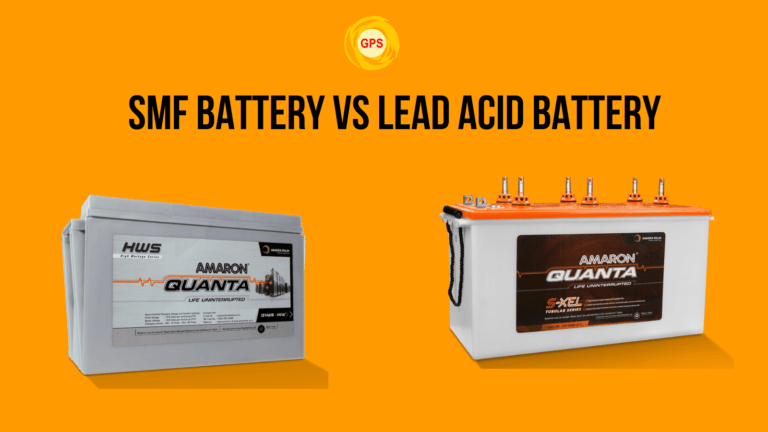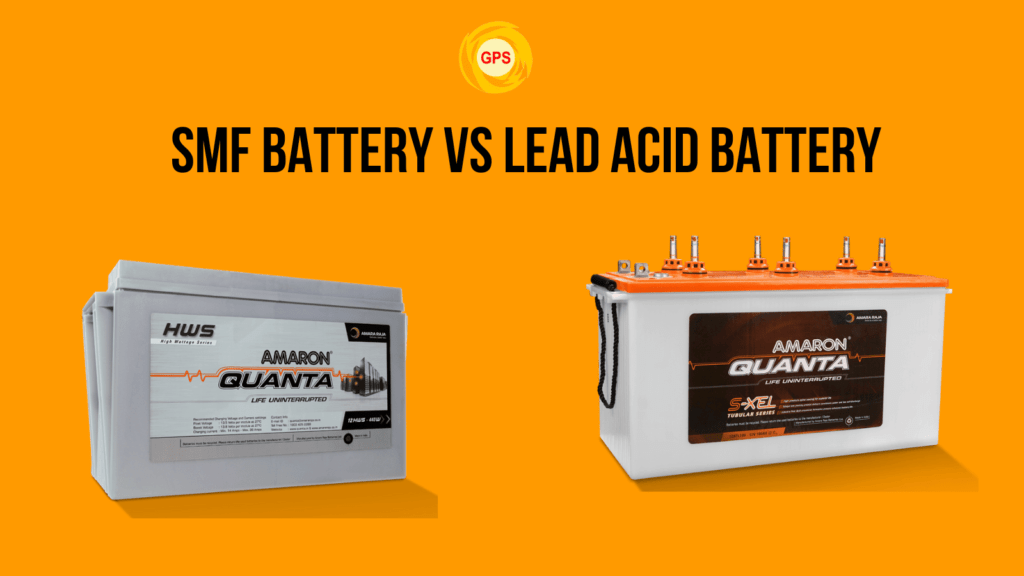Difference between SMF and Tubular Battery
Introduction
- Difference between SMF and Tubular Battery
- Difference between SMF and Tubular Battery? 2.1. AGM and Gel Technologies
- What are Tubular Batteries? 3.1. Spine Tubular and Flat Plate Designs
- Technical Differences Between SMF and Tubular Batteries
4.1. Internal Resistance
4.2. Charging Efficiency
4.3. Depth of Discharge
4.4. Cycle Life
4.5. Temperature Tolerance
- Choosing the Right Battery for Your Needs
- Conclusion
Difference between SMF and Tubular Battery
Difference between SMF and Tubular Battery is crucial for selecting the right energy storage solution. In this comprehensive guide, we will delve into the technical aspects of SMF (Sealed Maintenance-Free) and tubular batteries, allowing you to make an informed decision for your power needs.
What are SMF Batteries?
Difference between SMF and Tubular Battery Sealed Maintenance-Free (SMF) batteries, also known as Valve Regulated Lead Acid (VRLA) batteries, are designed to be maintenance-free and leak-proof. They come in two main varieties: Absorbent Glass Mat (AGM) and Gel batteries.
2.1. AGM and Gel Technologies
AGM batteries utilize a glass mat separator that absorbs the electrolyte, preventing leakage. They offer high power density, low internal resistance, and quick charge and discharge capabilities. In contrast, Gel batteries use a silica gel to immobilize the electrolyte, making them highly resistant to vibration and shock. Gel batteries also have a lower self-discharge rate and a longer cycle life compared to AGM batteries.
What are Tubular Batteries?
Tubular batteries are a type of lead-acid battery known for their durability and long life. They are available in two main designs: spine tubular and flat plate. Difference between SMF and Tubular Battery
3.1. Spine Tubular and Flat Plate Designs
Spine tubular batteries feature spines made of high-purity lead, which are cast into tubes and filled with active material. This design minimizes shedding and corrosion, resulting in a longer life. Flat plate tubular batteries use a combination of tubular and flat plate technology, offering improved efficiency and reduced maintenance requirements.
Technical Differences Between SMF and Tubular Batteries

Difference between SMF and Tubular Battery We will now explore the key technical differences between SMF and tubular batteries, focusing on internal resistance, charging efficiency, depth of discharge, cycle life, and temperature tolerance.
Differences Between SMF and Tubular Batteries Internal Resistance
SMF batteries, particularly AGM types, have lower internal resistance than tubular batteries. This results in more efficient power delivery and a faster charging rate. However, tubular batteries offer better performance in high-current applications due to their higher energy density.
Difference between SMF and Tubular Battery
4.2. Charging Efficiency
SMF batteries typically charge more quickly than tubular batteries. AGM batteries, in particular, can accept a higher charge current, allowing for shorter charging times. Tubular batteries, on the other hand, require a longer charging time due to their higher energy density.
Difference between SMF and Tubular Battery
4.3. Depth of Discharge
Tubular batteries have a higher depth of discharge (DoD) than SMF batteries, meaning they can be discharged more deeply without causing damage. This makes them more suitable for applications where frequent deep discharges are required, Difference between SMF and Tubular Battery,

